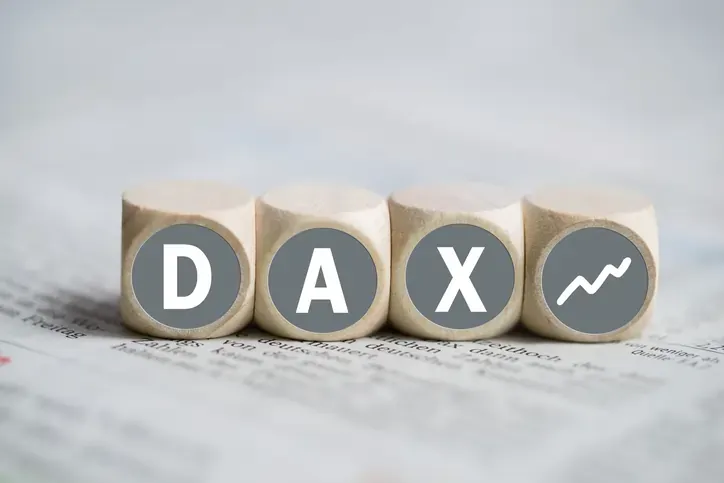
The DAX is Germany’s leading stock market index, offering traders diversified exposure to one of Europe’s leading economies. In this guide, we’ll explain what it is, its history and the key factors that affect its prices – as well as why you should consider trading it.
DAX, also known as the GER40, is a stock market index that tracks the forty major blue-chip companies trading on the Frankfurt Stock Exchange. Constituent selection is based on market value and liquidity, with current constituents including well-known brands like Volkswagen Siemens and Deutsche Bank. The DAX is widely regarded as a barometer of the German economy.
What’s the history of the DAX?
The DAX was first published on 1 July 1988 after being invented by Frank Mella, an editor at the German business newspaper Börsen-Zeitun. It originally only included thirty companies and was named the GER30 accordingly. It was changed to the GER40 in 2021 in an effort to make the index more representative of the German economy.
What factors affect DAX prices?
Some factors that affect DAX prices include:
- Constituent performance: The performance of the individual stock that comprise the DAX can have a knock-on effect on its price.
- Economic conditions: Changes in the economy can affect the performance of the DAX’s constituents, which in turn can affect the value of the index itself.
- Political events: Significant occurrences in Germany’s national politics can undermine confidence in the nation’s economy, which in turn can affect the value of the DAX.
- International events: The DAX’s price can be influenced by global events with far-reaching consequences, such as the COVID pandemic and the invasion of Ukraine.
Why trade the DAX?
There are many reasons why traders should consider trading DAX as part of their strategy, including:
- Targeted exposure: Germany has the largest economy in the European Union, making the DAX an effective way to get exposure to European financial markets while index trading.
- High efficiency: The DAX offers efficient access to 40 of the largest and most liquid publicly traded companies in Germany.
- Diversification: The constituents of the DAX span a range of economic sectors, meaning that trading the index offers diversification.
- Growth potential: The EU commission expects the German economy to resume growth in 2024, offering traders ample opportunities to profit.
As with any other asset, traders should consider their personal financial situation before deciding to trade the DAX, including their capital, timeframe and risk appetite.
The bottom line…
The DAX is a gauge of one of Europe’s largest economies and offers traders both exposure and diversification in a single asset. The index isn’t without volatility, but this can be mitigated with good understanding of the factors that drive its prices. After reading this article, you should be in a stronger position with regards to that understanding.


